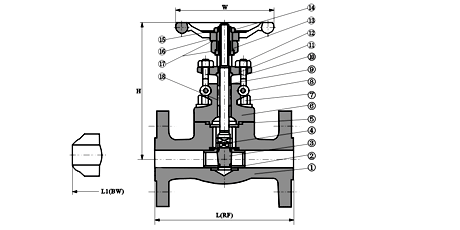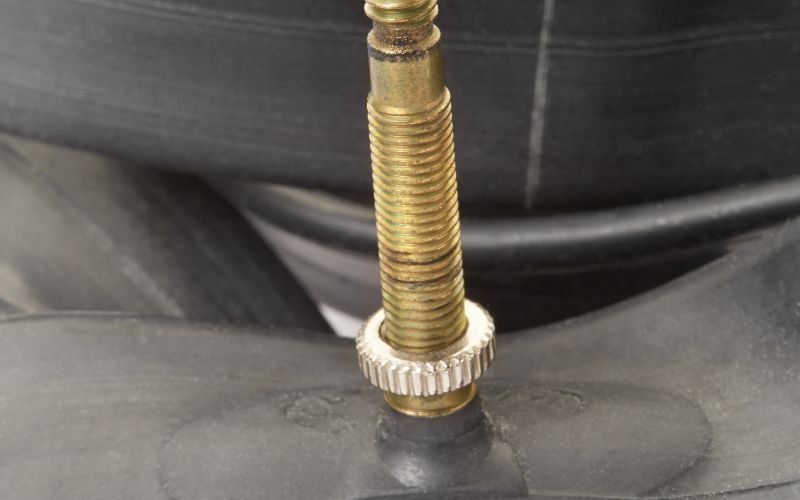
If you’re in the market for a valve that can withstand high pressure and extreme temperatures, then forged steel flange gate valves might just be what you need. These valves are designed to regulate the flow of liquids and gases in industrial applications, making them an essential component of many manufacturing processes. In this blog post, we’ll dive into the world of forged steel flange gate valves and explore why they are so popular among industry professionals. From their construction to their benefits and drawbacks, we’ll cover everything you need to know about these powerful valves. So let’s get started!
What are forged steel flange gate valves?
Forged steel flange gate valves, also known as wedge gate valves or API 600 gate valves, are designed to regulate the flow of liquids and gases in industrial applications. They are typically used in pipelines that transport high-pressure fluids such as oil, gas, or steam.
These valves consist of a body with two halves connected by bolts and nuts. Inside the body is a disc called a “gate” that slides up and down to control the fluid flow. The ends of the valve feature flanges that allow it to be connected to pipes using bolts and gaskets.
Forged steel flange gate valves come in various sizes ranging from 2 inches to over 24 inches in diameter. They can withstand temperatures ranging from -29°C (-20°F) up to around 538°C (1000°F), making them ideal for use in extreme environments.
One of the key advantages of forged steel flange gate valves is their ability to handle high pressure without leaking. The tight seal created between the disc and seat ensures minimal leakage even under heavy loads.
These robust and durable components play an essential role in many industrial processes where precise flow regulation is critical for optimal performance.
Why are they used?
Forged steel flange gate valves are used in various industries around the world. One of the main reasons they are used is because of their durability and strength. These valves can withstand high pressure and temperature, making them ideal for applications that require heavy-duty use.
Another reason why forged steel flange gate valves are popular is due to their ability to regulate fluid flow. The valve’s design ensures smooth operation when opening or closing, allowing the user to control the flow rate accurately.
In addition to regulating flow, these valves also prevent backflow by sealing tightly when closed. This feature makes them suitable for applications where contamination prevention is critical.
Moreover, forged steel flange gate valves have a longer service life compared to other types of valves due to their robust construction and corrosion resistance properties. Since they have fewer moving parts than other valve designs, they require less maintenance and offer more extended periods between servicing schedules.
These types of valves can be customized based on specific industry requirements such as size, material composition, temperature range capacity among others. With all these benefits combined forging steel flange gate valves remain one of the most reliable options available in today’s market for industrial usage
How do they work?
Forged steel flange gate valves are designed to control the flow of fluids through pipes. These valves operate by using a gate or wedge that moves up and down within the valve body.
When the valve is open, fluid can pass freely through it. However, when the valve is closed, the gate/wedge blocks off the flow of fluid completely. This makes these valves ideal for applications where precise control over fluid flow is required.
To operate this type of valve, you need to turn a handle or wheel that rotates a stem which in turn moves the gate/wedge up or down inside the valve body. When fully opened, there’s an unobstructed path for fluids to pass through with minimal pressure drop.
Due to their design and construction materials (forged steel), they are highly durable and can withstand high-pressure and temperature environments typically found in industrial settings such as oil refineries or chemical processing plants.
Forged steel flange gate valves provide reliable operation in controlling an important aspect of any piping system – fluid flow – making them essential components across various industries today.
What are the benefits of using them?
Forged steel flange gate valves are a popular choice in many industrial applications, and for good reason. One of the primary benefits of using these valves is their durability. Made from high-quality forged steel, they are able to withstand extreme temperatures and pressures without breaking or leaking.
Another benefit of using forged steel flange gate valves is their ability to provide tight shutoff when closed. This means that when the valve is shut off, there will be no leakage or flow through the system. This makes them ideal for use in critical applications where even small leaks can cause significant problems.
Furthermore, these valves have a simple design which makes them easy to operate and maintain. They also offer greater control over fluid flow as they can be easily adjusted with a handwheel or lever.
Additionally, forged steel flange gate valves are corrosion-resistant due to their durable construction materials. This allows them to function well even in harsh environments such as offshore drilling rigs where saltwater exposure is common.
There are numerous benefits associated with using forged steel flange gate valves including durability, tight shutoff capabilities, ease of operation and maintenance, better control over fluid flow and resistance against corrosion making them an excellent choice for many industries.
Are there any drawbacks to using them?
As with any product, there are potential drawbacks to using forged steel flange gate valves. One of the primary concerns is their cost – they tend to be more expensive than alternative valve types. This can make them less appealing for companies that need to keep costs down.
Another consideration is the weight and size of these valves. Because they’re made from solid materials, they can be heavier and larger than other options on the market. This means that installation may require additional resources or expertise.
It’s also important to note that while forged steel flange gate valves are highly durable and reliable, they do require maintenance and upkeep over time. Failure to properly maintain these valves could result in malfunctions or even complete failure.
Some companies may find it difficult to source high-quality forged steel flange gate valves from reputable manufacturers due to limited availability or long lead times.
While there are potential drawbacks associated with using forged steel flange gate valves, many companies still choose this option based on its proven performance record and durability in demanding environments.
Conclusion
To sum it up, forged steel flange gate valves are highly sought-after in the industrial sector for their durability, strength, and reliability. They are designed to prevent leakage while providing an easy on-off control mechanism.
These valves work by using the wedge-shaped disc that moves up and down within a metal frame to regulate flow effectively. Their benefits include high-pressure handling capability, resistance to abrasion and corrosion, compatibility with different temperature ranges and various fluids.
Although there may be some drawbacks such as the cost of installation or maintenance compared to other types of valves available in the market, they still prove themselves useful over time. The significant upside is its longevity which makes them a sound investment for any industry looking for durable solutions.
We can conclude that forged steel flange gate valves are excellent choices when it comes to controlling fluid flow under extreme pressure conditions where failure is not an option. With proper operation and regular maintenance checks from competent professionals equipped with knowledge about how these devices work precisely – they would undoubtedly provide reliable service for many years!





